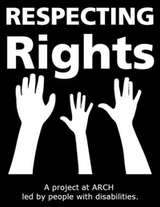Honouring Lived Experience

One cannot expect positive results from an educational or political action program which fails to respect the particular view of the world held by the people. Such a program constitutes cultural invasion, good intentions notwithstanding.
Honoured Living Experience







We engage learners in the learning process when we consider them fully and incorporate their identities and voices in our learning spaces. So it is important to take how others identify into account. Since there is no one way that people identify, a good practice is to always use what the person has told you themself. You may also want to take the time to explore the course glossary – there are many terms included, although it’s important to note that the language of identity continues to evolve.
Challenging by Modelling
The terms curriculum, teaching and learning, pedagogy, and educational design and implementation are being used in various contexts and often interchangeably in this course. In all cases, our educator presence is relational. By this, we mean that students experience our methodologies and course content as a whole experience of instruction, feedback, and modelling, meant to guide them to success.
Modelling support and celebration of lived experience is an important component of teaching. In particular, we can model and normalize anti-oppressive strategies in our classroom spaces, countering the status quo. For example, using pronouns in our everyday communication and inviting (not requiring) others to use their own is a way to demonstrate respect for varied gender identities and expressions. Modelling inclusivity in our educational spaces sets an important standard for our classrooms, our own workplaces, and the future workplaces our learners will enter.
Watch the following video, A New Beginning, for an example of the impact of modelling inclusivity.
CC is autogenerated
Indeed: A New Beginning
[ music ]
>> Hi. No.
[ music ]
Hi. I’m Taylor.
[ music ]
Hi. I’m here for my interview.
[ music ]
>> I’m Dorian and I use the pronouns he/him. Are you comfortable sharing how you’d like to be addressed?
[ music ]
>> Thank you for asking. I use they/them pronouns.
>> Great. Oh, I’d love to hear more about your skill set.
[ music ]
>> Sure. I went to school for advertising and...
[ music ]
A New Beginning - Runtime 0:51 min
https://www.youtube.com/watch?v=HKelRmfg2s8